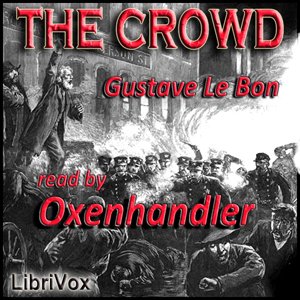The Crowd: A Study of the Popular Mind
"Civilisations as yet have only been created and directed by a small intellectual aristocracy, never by crowds. Crowds are only powerful for destruction. Their rule is always tantamount to a barbarian phase. A civilisation involves fixed rules, discipline, a passing from the instinctive to the rational state, forethought for the future, an elevated degree of culture — all of them conditions that crowds, left to themselves, have invariably shown themselves incapable of realising. In consequence of the purely destructive nature of their power crowds act like those microbes which hasten the dissolution of enfeebled or dead bodies. When the structure of a civilisation is rotten, it is always the masses that bring about its downfall." - Gustave Le Bon, from Introduction
Genre(s): Psychology, Social Science (Culture & Anthropology)
Language: English
Keyword(s): democracy (17), aristocracy (12), communism (11), Fascism (5), criminology (4), group psychology (1), oligarcy (1)
